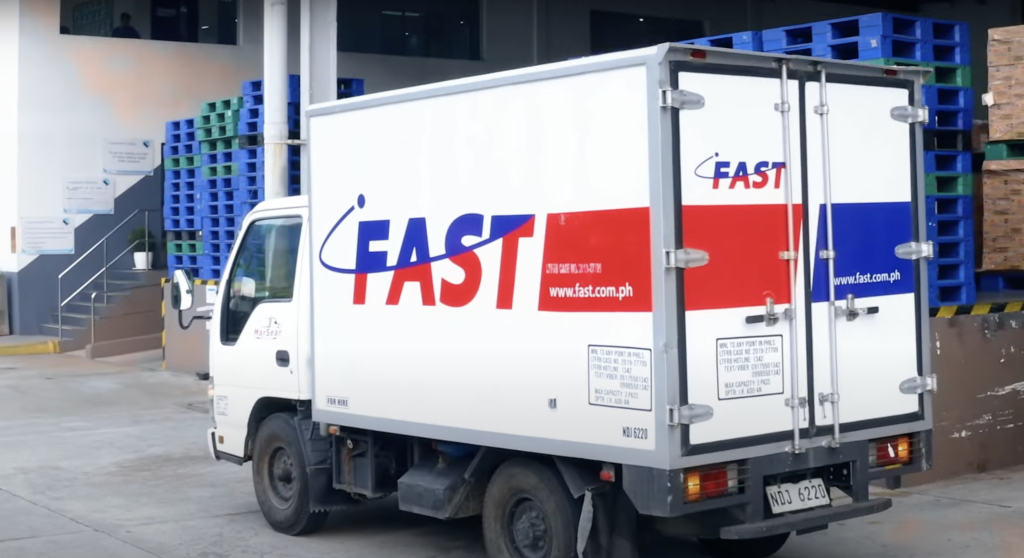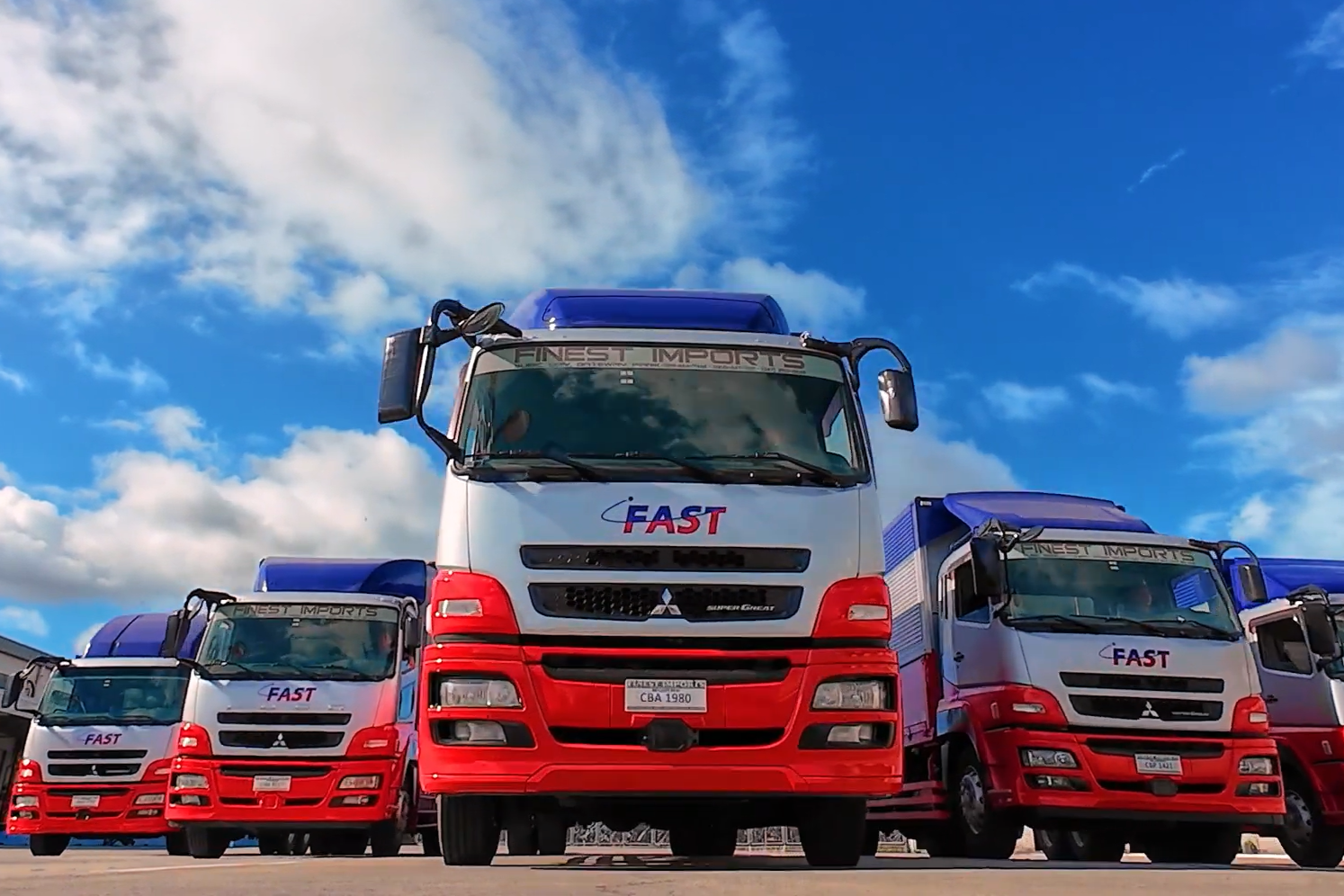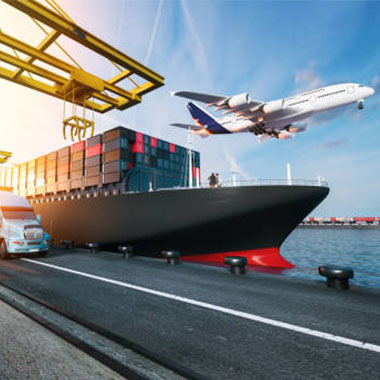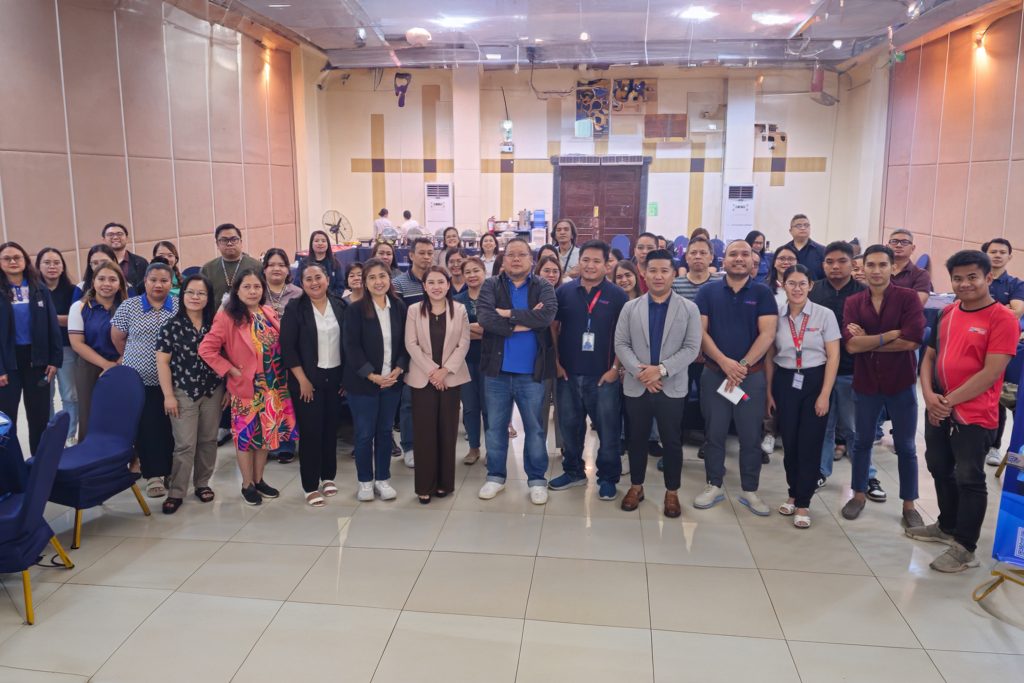
FAST Logistics Group, the leading end-to-end logistics and selling distribution company in the Philippines, explains the importance of transport management system in the Philippines.
Reliable supply chain processes and effective transportation management systems are the lifeblood of developing economies like the Philippines. After all, the unhampered and timely delivery of goods and services plays a significant role in ensuring that industries remain vibrant and productive.
For companies looking to streamline their logistics operations and improve their delivery systems, a comprehensive Transport Management System is a necessity. It enhances business operations by fostering real-time tracking and monitoring, cost-effectiveness, sustainability, and overall efficiency.
In this comprehensive guide, FAST Logistics Group examines the pivotal role of cutting-edge technology in enhancing transport management vis-à-vis distinctive challenges and opportunities characterizing the transportation sector in the Philippines.

Understanding Transport Management System
The Transport Management System or TMS is a set of software solutions designed to streamline and optimize the processes involved in transportation operations. It involves the planning, execution, and monitoring of transportation activities across different modes of transport, such as road, rail, air, or sea.
TMS leverages technology and offers significant advantages over manual processes and logistics services in terms of efficiency, cost savings, accuracy, visibility, scalability, data analysis, and better customer service. The system essentially acts as the all-in-one logistics platform to manage the movement of goods within the supply chain, from warehouses to end customers.
Common Features of Transport Management System
The TMS solutions utilized by logistics companies in the Philippines vary in terms of features, but they have common characteristics. Below are some common capabilities of the Transport Management System.
Route Planning and Optimization
Efficient transportation planning and optimization are vital components of a Transportation Management System. This feature considers variables like distance, time, cost, cargo type, and live traffic updates to generate the most effective delivery routes for cargo delivery.
Vehicle Load Building
TMS enables optimizing vehicle loading to maximize capacity and distribute loads efficiently, reducing shipping expenses, lowering carbon footprint, and optimizing fleet space utilization.
Fleet Scheduling and Dispatching
TMS also offers features for managing and scheduling fleets, including real-time tracking of vehicles and automated dispatching based on delivery schedules. These functionalities enhance fleet efficiency, minimize empty trips, and lead to fewer shipment delays. It also offers better business insights back into delivery progress.
Electronic Proof of Delivery
TMS integrates the use of electronic proof of delivery to streamline delivery confirmation and reduce paperwork. This results in faster billing cycles, improved customer service, and reduced errors.
Performance Tracking and Reporting
The data captured by TMS provides valuable insights into the performance of logistics operations. Key metrics such as on-time delivery rates, cost per mile, and carrier performance can be tracked and reported on through dashboards.
These features aim to simplify the complex supply chain operations for businesses, particularly in a country as geographically diverse as the Philippines.
FAST leverages TMS Trucker App to streamline job dispatch, offer confirmation, and document submission for day-to-day operations, freeing partner-truckers from the constraints of calls and texts.
Challenges in the Philippine Transportation Sector
The use of Transport Management System in supply chain operations empowers businesses to optimize their logistics processes amid the challenges confronting the transportation sector in the Philippines. Here are some of them.
Infrastructure Limitations
Although the Philippines has shown strong economic growth in Asia, experts point out that its economy is held back by outdated infrastructure. An IMF Public Investment Management Assessment in 2019 highlighted that the Philippines is at par with its regional counterparts in terms of infrastructure spending; however, a 23% efficiency gap was noted when comparing its performance in translating public investment into infrastructure with best practices.
Infrastructure limitations, which include poor road quality and congestion of airport and seaport facilities, hinder the efficient movement of goods and services. It also poses threats to business development and supply chain management.
Fragmented Transport Networks
The Philippines suffers from fragmented transport networks, characterized by poor intermodal integration between regions. Some road networks are not effectively linked with other modes of transport such as railways, airports, or ports.
The lack of efficient intermodal connectivity between islands results in lengthy transit times and higher transportation expenses, particularly for goods moving between Luzon, Visayas, and Mindanao. It also causes bottlenecks and potential delays in the movement of goods across the archipelago.
Traffic Congestion
Heavy traffic is a pressing challenge in the Philippines. Key growth centers or business hubs, especially Metro Manila, rank amongst the world’s worst cities for traffic. According to some estimates, it takes about five minutes to drive just one kilometer in the National Capital Region.
This not only costs the economy millions of pesos each day but also poses significant challenges for logistics operations. Heavy congestion leads to delays, higher operational costs, and increased carbon emissions.
FAST utilizes Transport Management System to enhance route efficiency and enable immediate decision-making, leading to cost reduction and swift resolution of potential disruptions. The system also provides truck drivers with real-time updates, empowering them to stay informed about hazards and other crucial information while in transit.
Expensive Fuel Costs
The Philippines heavily depends on imported oil, making fuel expenses a significant burden for the transportation sector. Because of relatively low production output, the country is expected to continue importing crude oil and petroleum products to meet growing demand.
High fuel costs add up to transportation expenses and affect the prices of goods and services in the country. It also poses a cost challenge to logistics providers, particularly those with extensive transportation networks across different islands.
FAST employs the TMS AI Planner with advanced AI algorithms to optimize shipment allocation, route planning, and delivery schedules. With real-time updates on traffic conditions and delivery time windows, customers can ensure smooth operations and cost savings.
Efficient transport management systems can mitigate these challenges by providing alternative routes, real-time traffic updates, and efficient fleet scheduling order management.

Benefits of Transport Management System on Businesses
Transport Management System provides a wide array of benefits to businesses that are looking to enhance their transportation and logistics operations and improve customer satisfaction. Here are some of the many benefits of TMS:
Optimized Route Planning and Fleet Management
TMS enables supply chain managers to determine the most efficient routes by considering factors like traffic, weather, and delivery schedules for maximum efficiency. This reduces the time it takes to deliver a product and increases the number of deliveries per day.
Lower Fuel Consumption for Higher Cost Savings and Sustainability
TMS also helps businesses enhance the capacity utilization of their fleet or trucks. By maximizing the load capacity of each vehicle, the need for transporting goods is reduced, leading to fuel efficiency improvements and decreased carbon emissions.
Improved Visibility and Tracking Capabilities
With TMS, businesses have real-time visibility into the status and location of shipments from origin to destination, cutting down on confusion and improving customer service. This feature also allows for better tracking of carrier performance, ensuring that businesses are using reliable and efficient carriers. Tracking shipments and proper documentation of deliveries also improve existing systems within the supply chain.
FAST employs AI-powered dashcams that utilizes machine learning technology across its extensive fleet to swiftly detect and address distracted driving, road hazards, and other risks in real-time.
Minimizing Risks of Accidents and Delays
Due to enhanced business surveillance of transport vehicles and cargo during transit, companies can readily guide drivers to steer clear of congested routes and road hazards. As a result, businesses can avoid potential accidents that might cause delays.
Enhanced Communication Among Key Players
TMS also serves as a centralized platform for all stakeholders involved in transport operations, promoting better communication and collaboration. It provides a way for suppliers, warehouses, carriers, and customers to share information in real time, streamlining the supply chain and improving overall efficiency.
Proactive and Data-Driven Decision Making
Through insights provided by TMS, businesses can analyze key performance indicators and historical data in supply chains such as delivery times, transportation costs, and carrier performance to make data-driven decisions to optimize their processes and address bottlenecks. This aids supply chain managers in making proactive and data-driven decisions over their operations.
Higher Levels of Customer Satisfaction
Enhanced and transparent delivery services via TMS enable businesses to meet customer demands, a crucial factor to building and maintaining a loyal customer base. Customers tend to favor brands, especially retail businesses companies, that provide a smooth and hassle-free delivery experience.
Scalability and Expansion
As businesses grow, manual logistics processes can become increasingly complex and difficult to manage. TMS solutions are scalable and adaptable, capable of handling growing volumes of shipments and expanding transportation networks without incurring additional labor costs.
Qualities of a TMS Provider Businesses Should Look For
Choosing the right TMS solutions provider is a critical step for companies looking to integrate this technology into their logistics operations. Here are some essential qualities to look for in a TMS provider:
Industry Leadership and Expertise
An experienced TMS solutions provider possesses expertise in implementing logistics solutions across various industries, including retail, healthcare, manufacturing, and more. Select a fourth-party logistics provider with a demonstrated history of success and a solid reputation among other companies. They will provide the insights and best practices to help you get the most out of your Transportation Management System.
Comprehensive Solutions Portfolio
A reliable and advanced TMS solutions provider should offer end-to-end solutions for transportation management, including route planning, execution, real-time monitoring, and data reporting. They should also provide solutions for carrier management, freight payment and auditing, and supply chain visibility to optimize processes throughout the entire supply chain.
Assets, Reach, and Network
Consider working with a TMS provider that has a nationwide presence and robust transportation network to handle your end-to-end transport management, warehouse management, and logistics operations effectively. Logistics companies with extensive fleets, warehouses, and distribution centers can help you expand into new markets.
Customizability and Flexibility
Every business has unique logistics requirements. An ideal TMS provider offers customizable logistics platform solutions that can adapt to the changing needs of your business or markets.
To learn more about TMS, watch the full video below:
Adopting Transport Management System in the Philippines
Leveraging a Transport Management System is a strategic move that empowers businesses to revolutionize their logistics and transportation intelligence. Harnessing cutting-edge technology in management systems will yield tangible benefits to their financial performance. Thus, investing in TMS is pivotal for Philippine companies seeking to grow and thrive in the ever-evolving market.
For a comprehensive insight into the advantages of adopting a Transport Management System in the Philippines, connect with a TMS provider well-versed in top-notch logistics services and industry-specific requirements. Contact our Solutions Expert or visit http://linktr.ee/fastlogisticsph to learn more.
Categories
-

FAST Ahead
Includes case studies and testimonials of our partners as well as other featurettes from industry experts
-

FAST Hacks
We simplify logistics terms and provide practical tips and solutions for the DIY in you
-

FAST Highlights
Know more about our history, various brands, achievements, and news updates
-

FAST Moments
Get to know the people of FAST, our employee programs, as well as our various ways of giving back to the community
-

FAST Solutions
Learn more about the various logistics solutions that we cater to and offer our clients, as well as tech innovations, and service facilities



